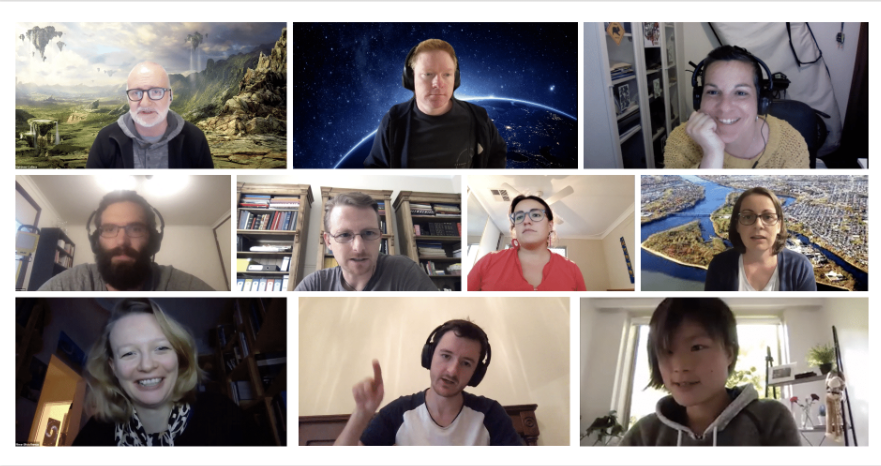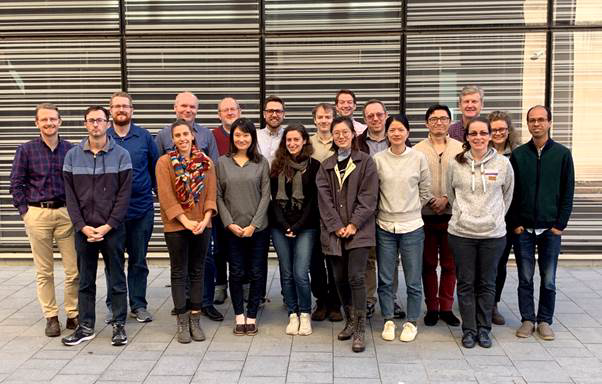Hunstead Workshop
2025 Hunstead Workshop: OzGrav Dynamic Radio Sky
2024 Hunstead Workshop: MESA Down Under Winter School
MESA Down Under Winter School
brought together 23 teachers and 39 participants form around the world to develop skills in the use of Mesa, an open-source Python library for agent-based modelling, ideal for simulating complex systems and exploring emergent behaviours.
The stellar structure and evolution code Modules for Experiments in Stellar Astrophysics (MESA) has played a pivotal role in making the study of stellar structure and evolution readily accessible to the broad astronomy community. It was identified as a key software tool for astronomy in the 2020 U.S. Decadal Survey and has “seeped into the foundation of research and education efforts and have given rise to an immense amount of new research across multiple subfields of astrophysics,” as quoted in the 2021 Beatrice M. Tinsley Prize awarded to the first MESA developer, Bill Paxton, by the American Astronomical Society. Since 2012, annual MESA schools have been organised to teach new users and the next generation of astrophysicists and MESA developers how to use the code. In June 2024, the MESA school was brought to Australia for the first time under the name MESA Down Under, with the intent of making the school more accessible to students and early career researchers in Australia who constituted 40% of the 39 participants of the school. The 21 invited international lecturers and teaching assistants participating in the school provided both lectures and hands-on exercises on the basics of the code and a variety of example science applications. The high teaching assistant to student ratio (1:3) provided an optimal learning environment for the students, ensuring that they could easily get help and ask questions if they encountered any issues
2020 Hunstead Workshop: MAGPI Virtual Workshop
MAGPI Virtual Workshop
Virtual workshop, 14-17 April 2020.
MAGPI team members and representatives from relevant surveys and theoretical simulations also joined our productive 4-day meeting. Twenty-three people attended (virtually) from Australia and Europe to discuss the survey status, science updates and took part in strategic workshops, including various synergies with other groups.
Intensive 2-hour sessions were held each day. These were recorded and posted on the internal wiki for those who were unable to join live. Participants were encouraged to turn on their camera when they were speaking to allow for a more personal experience. As this was a “hands-on” workshop, participants came up with innovative ways to collaborate remotely. Tools like Slack, GitHub, Zoom, cloud storage and virtual desktops were amongst the tools that made the meeting a success. Feedback from all involved was overwhelmingly positive.
As the event was originally planned face-to-face, we would like to thank the Hunstead Gift for Astrophysics for their generous support, although we did not incur any costs.

2019 Hunstead Workshop: Dynamical Models of Observed Galaxies
Dynamical Models of Observed Galaxies
The University of Sydney, 3-7 June 2019
Large new IFS Galaxy Surveys allow for a more detailed insight in the dynamical properties of galaxies than ever before. IFS instruments such as VLT-MUSE, AAT-SAMI, and MaNGA are now intensively used by the Australian community to understand how galaxies build up their mass and angular momentum over time. At the same time, there has been a revolution in surveying the Milky Way with ESA-Gaia, GALAH and APOGEE, resulting in an extraordinary number of recent publications on the dynamical properties of our own Galaxy.
Dynamical models of galaxies are crucial for interpreting all these stellar kinematic measurements, but fitting these models still requires a significant amount of effort and expertise. This workshop is aimed at making dynamical fitting and modelling more accessible to the Galactic and extragalactic community.

2018 Hunstead Workshop: Planets in Peculiar Places
Planets in Peculiar Places
The University of Sydney, 5-6 April 2018.
Exoplanetary science since 1995 has been dominated by a race to find the most Earth-like planets around the most Sun-like stars, but there are much stranger worlds in much more exotic systems than this. While we are beginning to have a clear picture of the formation and evolution of planetary systems around solar-like main-sequence stars, we are in the dark about planets around more massive stars in their lives and various afterlives. The Sydney Institute for Astronomy is hosting a Hunstead Workshop to bring together the vibrant and diverse community beginning to address these questions, interleaving talks by observers and theorists, focusing especially on the Australian contributions to asteroseismology and transit searches (Kepler, TESS), radial velocity (e.g. Veloce, RHEA, Minerva), pulsar timing, direct imaging, and large spectroscopic surveys, and how we can tie these efforts together to understand the strange physics of planets in these peculiar places.

